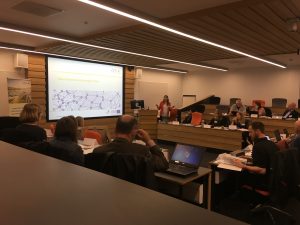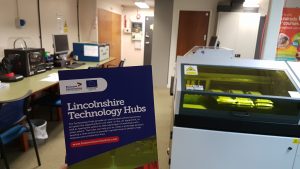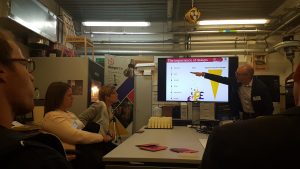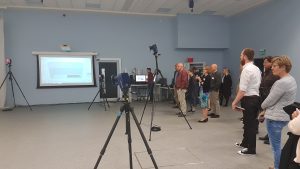16. – 18. May 2018 CORA partners and stakeholders met in Lincoln, UK to discuss the current status of the project, share their findings and plan further project activities.
A motivated partner consortium came together on day one, to get an overview of the project activities, requirements and achievements so far. Furthermore all internal and external communication materials were presented and future communication activities at the regional and transnational level were discussed. 
On the second part of the day project partners were invited to visit a rural digital Hub in Lincolnshire. The practical implementation and operation of digital services and competences was showcased in the Horncastle Hub. Entrepreneurs get the chance to gain first experiences with the use of 3D / UV printers.
Local Stakeholder (e.g. the leaders of the local digital hubs and participants from the Lincoln University) joined in on day 2. aconium GmbH introduced the CORA concept on digital transformation followed by a presentation of the University of Lincoln on a step-by-step process for planning, implementing and operating rural digital hubs. Furthermore, the University of Groningen shared the results of a CORA online-survey around digital divide in the participating regions.
As the second part of the day, pilot activities in seven countries of the North Sea Region (DE, BE, UK, NO, SE, DK, NL) were presented. Nine test beds addressed their actions for the development of digital infrastructure, digital competences and digital services. Lots of different regional and national challenges in rural areas were thematised. One more time it became clear that this transnational collaboration is about learning from each other and getting people in those regions passionate about the opportunities of digital transformation.
As next, the project partners were invited to visit two successful digital hubs at the Lincoln University. The DesignBlok Hub and MoCap Hub based at the University of Lincoln presented good examples for the combination of digital technologies and handcraft as well as the analysis of the human motions for the optimization of industrial products.


Day 3 closed this partner meeting with a presentation of the financial handbook and explanations on the most relevant book-keeping and finance activities for partner.

